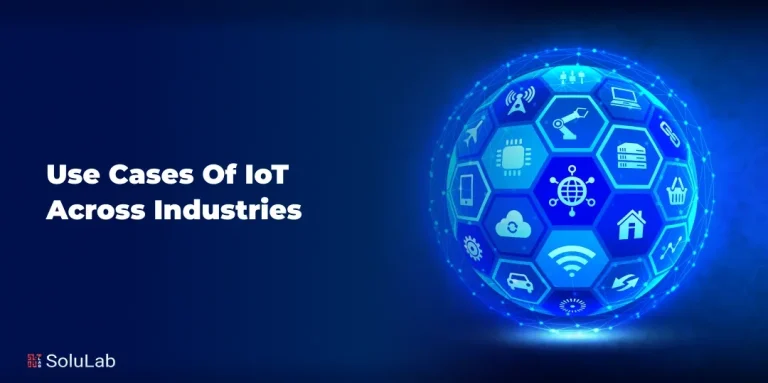Since its debut with Bitcoin, blockchain has become a trusted solution across finance, healthcare, logistics, and more—valued for its transparency, security, and decentralization.
With the market projected to hit nearly $1,000 trillion by 2032, choosing the right platform is key to building a successful blockchain application. Industries like supply chain, healthcare, logistics, and finance now widely adopt blockchain for its capacity to enhance transparency and streamline business processes. Immutability, security, and decentralization stand as the pivotal traits defining blockchain’s popularity.
This blog highlights the Top 10 blockchain platforms of 2026 to help you make the right choice. But first, let’s quickly revisit what makes blockchain so impactful.
What is a Blockchain Platform?
A blockchain platform is a structure or framework that enables the development and implementation of blockchain systems and applications. It offers the services and tools required to create and administer blockchains, such as data storage, smart contract functionality, and distributed ledger technology (DLT).
Important Features of a Blockchain Platform:
- Distributed and Decentralized Ledger: Blockchain systems enable the creation of shared, immutable digital ledgers that track assets and transactions across a network of computers.
- Security and Transparency: To ensure data integrity and prevent alteration or hacking, they employ cryptographic techniques to guarantee their security and transparency.
- Smart Contract Functionality: Self-executing contracts, also known as smart contracts, that automate procedures and agreements are frequently implemented on blockchain platforms.
- Scalability and Flexibility: They provide choices for creating private and public blockchains, enabling varying degrees of access control and transparency.
- Interoperability: Some platforms concentrate on making it possible for blockchains to communicate with other systems and with one another.
Advantages of Using Blockchain Platforms
Utilizing a blockchain development platform brings forth a range of advantages, as outlined below:
1. Comprehensive Resource Hub
In the intricate process of developing blockchain or decentralized applications, various prerequisites must be met. A blockchain platform serves as a one-stop shop, providing structured and secure access to all essential components, expediting the development of blockchain applications.
2. Enhanced Productivity
Blockchain facilitates peer-to-peer transactions, eliminating the need for intermediaries between businesses and consumers. This streamlined process contributes to heightened levels of productivity and Return on Investment (ROI) for businesses.
3. Fraud Prevention
Once information is stored on the blockchain, its immutability makes it nearly impossible to misuse or alter. This inherent feature of blockchain technology ensures a robust defense against fraudulent activities.
Related: Benefits of Blockchain-as-a-Service
4. Greater Transparency
Blockchain technology increases transparency since network participants may see transactions and data in real time. This simplifies data tracking and verification, decreasing fraud and errors. Blockchain transparency builds trust, which is crucial in supply chain management and voting systems.
5. Reduced Cost
Blockchain technology could cut costs. Decentralized networks eliminate intermediaries like banks and other financial organizations, lowering transaction fees and other costs. Automation cuts labor expenses and boosts efficiency by eliminating manual involvement.
Top Blockchain Platforms
Blockchain functions as an immutable ledger that enables decentralized transaction processing. Now, you must be wondering what are the best blockchains to be used. So, the top blockchain platforms in use right now are listed below.
1. Ethereum
Back in 2013, Ethereum came onto the scene and quickly became one of the most talked-about names in blockchain. Unlike Bitcoin, which mainly focuses on payments, Ethereum opened the door to something new: smart contracts—tiny self-executing programs that run on the blockchain.
Ethereum isn’t just popular because it’s old—it has a full toolbox for developers. Languages like Solidity and tools like the Ethereum Virtual Machine (EVM) make it easier to create dApps, especially in areas like NFTs, where people are trading unique digital items.
Plus, Ethereum’s not alone. It’s backed by a strong community and the Enterprise Ethereum Alliance, which includes major players like Microsoft and JPMorgan. So even if it’s not the fastest horse in the race, it’s definitely one of the most trusted—and that counts for a lot. No wonder it ranks high on the top blockchain platform list and remains central to the top blockchain platforms for crypto development.
2. IBM Blockchain
IBM Blockchain takes a slightly different path from open public networks. It’s a permissioned platform, which means only approved participants can access it—something that works well in corporate settings. Instead of building entirely new systems, IBM made sure its blockchain meshes well with existing business infrastructure, which has helped in industries like supply chain, finance, and retail.
One standout project is IBM Food Trust. It tracks the entire food journey—from the farm to your fork—with major retailers like Walmart already using it. In Thailand, IBM’s tech helps banks with inter-company payments and digital auctions, showing how adaptable this platform really is.
It may not be the flashiest blockchain, but for enterprise use, it’s among the most practical on the top blockchain platform list, especially for those seeking top blockchain platforms for crypto development in private settings.
3. Hyperledger Fabric
Hyperledger Fabric is like the Swiss Army knife of enterprise blockchains. Created by the Linux Foundation, it’s built with flexibility in mind—especially for businesses that need more control over who sees what. It’s modular too, which means companies can plug in only what they need and skip the rest.
Instead of everyone seeing every transaction, Hyperledger Fabric lets organizations isolate data in private “channels”—a feature that’s especially handy for industries with strict privacy rules. It also supports different data models like accounts or UTXO, depending on the need.
Its community continues to add features and optimize performance, and if you’re a developer building in a corporate environment, Fabric’s structure makes it one of the top blockchain platforms for crypto development. It’s no surprise it holds a firm spot on the top blockchain platform list.
4. R3 Corda
Corda, developed by R3, marches to its own beat. Some argue it’s not technically a blockchain because it doesn’t bundle transactions into blocks. But that’s part of the appeal. It processes transactions one by one in real-time, which gives it a performance edge.
One of its standout features is delivery-versus-payment, which helps settle trades across different systems without hiccups. In insurance, it’s used to handle claims and settlements more efficiently.
With a strong foothold in finance and a system that prioritizes real-world performance over blockchain purity, Corda earns its place among the top blockchain platform list—especially for enterprise-grade use cases beyond the scope of most best new blockchains.
5. Tezos
Tezos has been around since 2014 and takes pride in its adaptability. It was one of the first platforms to let users upgrade the protocol without needing to fork—which means no painful splits or migrations for developers and users.
This flexibility comes from its on-chain governance model, which lets the community vote on changes. It’s a big deal, especially when you want to evolve without starting from scratch. Tezos also runs on a PoS system, which is easier on the environment than older blockchains.
From NFTs to enterprise integrations, Tezos keeps up with the pace of innovation. It might not always make the headlines, but its steady stream of upgrades makes it a reliable player in today’s best new blockchains and a top choice on any top blockchain platforms for crypto development list.
6. Binance Smart Chain
Binance Smart Chain has emerged as one of the most popular blockchain platforms for decentralized applications, primarily due to its low transaction fees, fast processing times, and strong backing by Binance—one of the world’s largest crypto exchanges. Built to run parallel to Binance Chain, BSC supports smart contracts and is fully compatible with the Ethereum Virtual Machine (EVM), making it incredibly easy for developers to port their dApps from Ethereum with minimal changes.
The platform’s Proof of Staked Authority (PoSA) consensus model allows for faster block times and higher throughput without compromising too much on decentralization. This blend of speed and affordability has made BSC a go-to choice for DeFi projects, NFT platforms, and token launches.
Additionally, the extensive liquidity and user base within Binance’s ecosystem give BSC a strong strategic edge for startups looking to gain rapid adoption and access global markets.
7. Stellar
Stellar was created with financial inclusion in mind, aiming to simplify how money moves across borders. It’s efficient, lightweight, and built for speed—qualities that make it ideal for decentralized finance (DeFi).
It uses the Stellar Consensus Protocol (SCP), which doesn’t require mining and can finalize transactions quickly and securely. That’s why it’s used by MoneyGram, Circle, and Flutterwave for everything from remittances to treasury infrastructure.
While it doesn’t try to compete with every blockchain use case, it dominates the payments space. Stellar has earned its place among the best new blockchains and is featured regularly in discussions about the top blockchain platforms for crypto development.
8. Solana
Solana has carved a niche as a high-performance blockchain designed to support fast, scalable decentralized applications and crypto projects. It is renowned for its ability to handle over 65,000 transactions per second (TPS) with minimal fees, thanks to its innovative hybrid consensus model combining Proof of History (PoH) with Proof of Stake (PoS).
Solana’s architecture makes it ideal for use cases that require real-time processing and large-scale throughput, like gaming, NFTs, and high-frequency trading platforms. Its fast-growing developer ecosystem, active community, and increasing number of institutional partnerships have cemented Solana’s status as a top-tier blockchain platform.
Despite occasional downtime issues, Solana continues to be the choice for builders who need both speed and scalability without the bottlenecks typically associated with older blockchains like Ethereum. If your project prioritizes ultra-fast transaction speeds and low costs, Solana could be your ideal foundation.
9. Avalanche
Avalanche is a highly flexible, eco-friendly blockchain platform designed to support scalable and customizable dApp development. What sets Avalanche apart is its unique architecture, featuring three interoperable blockchains—the Exchange Chain (X-Chain), Platform Chain (P-Chain), and Contract Chain (C-Chain)—each optimized for different use cases.
Avalanche uses the Avalanche consensus protocol, which enables near-instant transaction finality and supports thousands of validators, making it highly decentralized and secure. One of Avalanche’s most compelling features is its ability to launch custom subnets, allowing businesses and developers to create their own tailor-made blockchain networks that comply with specific regulatory, geographic, or technical requirements.
Compatible with the Ethereum ecosystem, Avalanche also supports Solidity smart contracts and popular Ethereum development tools. It’s especially suited for DeFi, enterprise blockchain deployments, and institutional-grade asset tokenization, offering a powerful mix of speed, flexibility, and compliance-readiness.
10. TRON
TRON launched in 2017 with a bold vision to decentralize the internet. It’s especially popular in the world of entertainment, letting users publish, share, and monetize content without middlemen.
It runs on a DPoS consensus model, which helps it deliver high-speed transactions and low fees. That’s why it’s been widely adopted in Asia, especially for gaming, streaming, and DeFi apps.
Though it sometimes flies under the radar, TRON’s performance and ecosystem make it one of the best new blockchains and a strong player in the top blockchain platforms for crypto development. It comfortably earns its place on the top blockchain platform list.
Criteria to Choose the Best Blockchain Development Platforms
Here are 5 key criteria to consider when choosing the best blockchain development platform:
1. Scalability: Choose a platform that can handle increasing numbers of transactions without slowing down, especially if you plan to scale your application over time.
2. Consensus Mechanism: Look for platforms with efficient consensus algorithms (like Proof of Stake or Proof of History) that offer a good balance between speed, security, and decentralization.
3. Smart Contract Support: Ensure the platform allows easy development, deployment, and auditing of smart contracts, especially if your project involves automation or decentralized apps (dApps).
4. Community and Developer Support: A strong, active developer community means better documentation, more tools, and faster issue resolution, which can significantly speed up your development process.
5. Security and Reliability: Select platforms with a proven track record of resisting hacks and downtime, as blockchain applications often involve sensitive data and real assets.
Concluding Remarks
Choosing the right blockchain platform in 2026 depends on what you want to build and how you want it to perform. Whether it’s Ethereum’s strong smart contract ecosystem, Solana’s fast speed, or any other platform, each has its unique strengths.
The key is to match your project’s needs, like scalability, security, and developer support, with the platform’s features. The blockchain space keeps changing, so staying updated is important. Whatever you pick, these top platforms are leading the way in making blockchain technology more accessible and powerful than ever before.
NovaPay Nexus, a self-hosted crypto payment processor, faced challenges integrating multiple cryptocurrencies, ensuring security, and simplifying user adoption. With SoluLab’s help, it achieved blockchain integration, fortified security, an intuitive interface, tailored hosting, and educational resources, boosting user trust and expanding its ecosystem effectively.
SoluLab, a blockchain development company, can help you select the best blockchain platform or custom decentralized application as per your business needs. Contact us today to discuss further.
FAQs
1. What are the benefits of Blockchain platform?
Blockchain platforms offer decentralized data management, enhanced security through cryptography, transparency, immutability of records, and efficient transaction processing without intermediaries.
2. Which blockchain platform is known for its smart functionality?
Ethereum is widely known for its advanced smart contract functionality, allowing developers to create decentralized applications (dApps).
3. What is the most secure Blockchain platform?
Ethereum is considered one of the most secure blockchain platforms due to its robust infrastructure, large decentralized network, and strong security protocols.
4. Which blockchain platform introduced smart contracts?
Ethereum introduced smart contracts, enabling programmable and self-executing agreements on the blockchain.
5. What is the main purpose of using Blockchain platforms?
The main purpose of blockchain platforms is to provide a decentralized and secure way to manage, store, and transfer data or assets, eliminating the need for intermediaries and enhancing trust.





